The First Crisis of Globalization
Professor Frank Biess, the newest recipient of the Rita L. Atkinson Chair in German Studies, shares his latest research
Published Date
Article Content
Professor of History Frank Biess was recently honored as the newest recipient of the Rita L. Atkinson Endowed Chair in German Studies. Dozens of faculty colleagues, students, campus leadership, friends and family members gathered at Atkinson Pavilion to celebrate on May 29.
A historian of modern Europe with an emphasis on 20th century Germany, Biess delivered a lecture on his current research, which focuses on the period of the Weimar Republic, Germany’s first attempt at a democratic system of government following the end of World War I. He examines this period in time, between 1919 and 1933, through the lens of globalization, drawing parallels between politics, pandemics and economic downturns that continue to echo today.
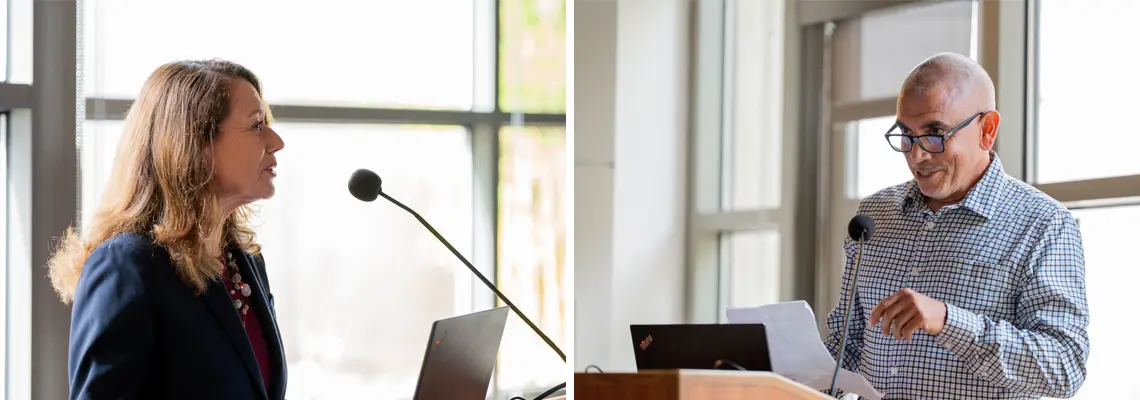
In advance of his lecture, school leaders lauded Biess for his prolific, impactful research and collegiality within the Department of History.
“Frank’s research is both timely and thought-provoking and reminds us why historical analysis matters so deeply,” said Cristina Della Coletta, dean of the School of Arts and Humanities. “It’s an honor to present Frank with the Rita L. Atkinson Endowed Chair in German Studies as acknowledgement of the incredible work he has done, and in recognition of the excellent research that is still to come.”
Department chair Luis Alvarez added, “I’m nearing the end of my term as chair and I’m grateful for having Frank as someone I know I can always count on for principled, supportive and informed consultation…Not only does Frank do his job remarkably well on all fronts, but he makes doing our jobs better for the rest of us, too. We are all fortunate to call Professor Biess a colleague and I congratulate him on this well-deserved honor.”
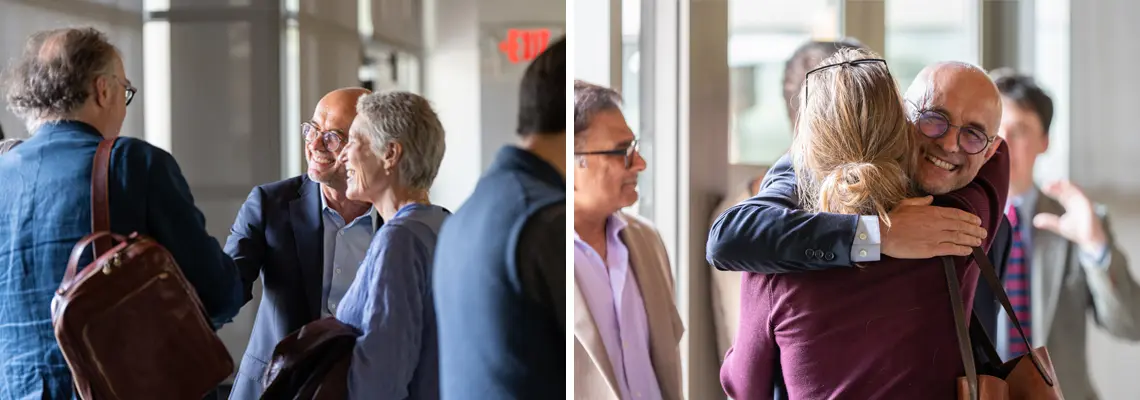
Over his 25-year tenure at UC San Diego, Biess has produced two solo-authored books, over 40 peer-reviewed articles and five co-edited volumes and special journal issues, along with dozens of essays, interviews and reviews. He is currently working on a third book, a global history of the Weimar Republic that explores German national history in the context of migration, colonialism and revolution in Europe and beyond.
“I came to this country as an international student from Germany in 1991 because I was attracted by the promise of American universities, and I pursued an academic career here because I quickly realized that there's no better place to do so than at the University of California,” shared Biess during his talk.
“But much of what distinguished American universities is currently being threatened. Our current predicament here is part of a much broader crisis, a crisis of globalization that shares many similarities with the crisis of globalization that happened 100 years ago.”
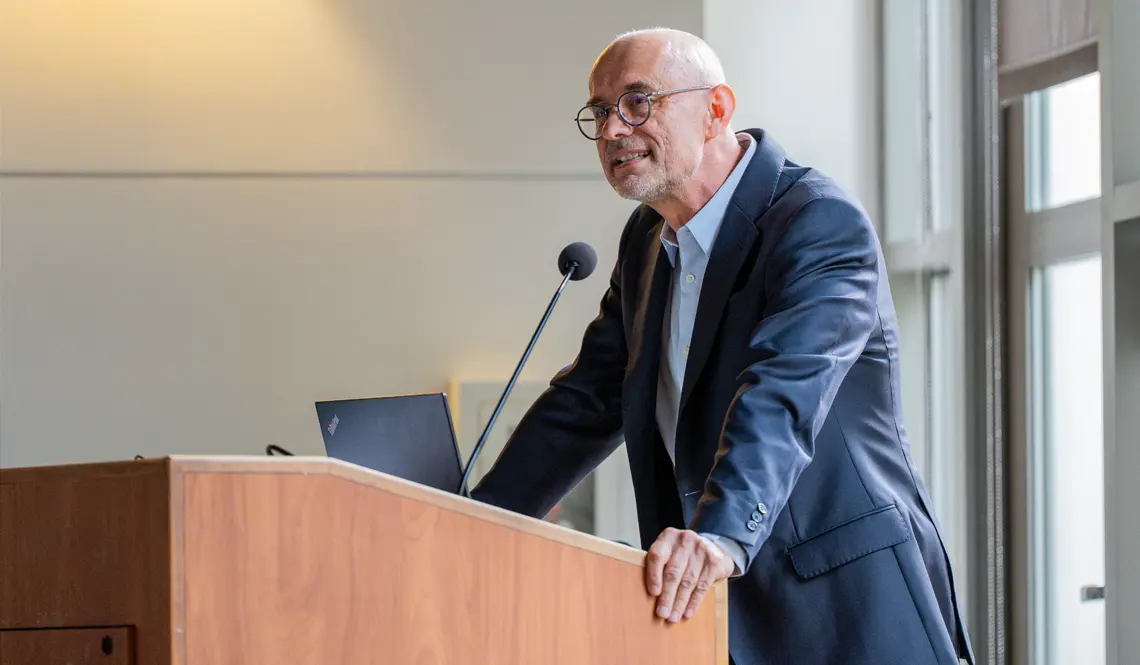
Biess’ lecture offered reasons why the study of German history is highly relevant at this moment in time. He began by framing the notion of crisis based on the work of historian Reinhart Koselleck. “Crisis is not necessarily a bad thing; it's an open situation that requires a choice between stark and non-negotiable alternatives,” explained Biess. “It's important to remember the roads not taken then and now.”
World War I created a crisis situation for Germany. Biess described how in 1916 Germany's dependency on food imports was exposed following a British naval blockade—which led to mass starvation and the death of upwards of 400,000 citizens. Even more perished with the arrival of the Spanish Flu in 1918, another impact that can be traced to the growth of global connections.
Germany also became the first post-colonial nation and began to experiment with democracy through the creation of the Weimar Republic in 1919. “Rather than demanding an increasingly unlikely return of German colonies, Weimar officials focused on reestablishing and expanding Germany's influence through informal cultural and economic means.”
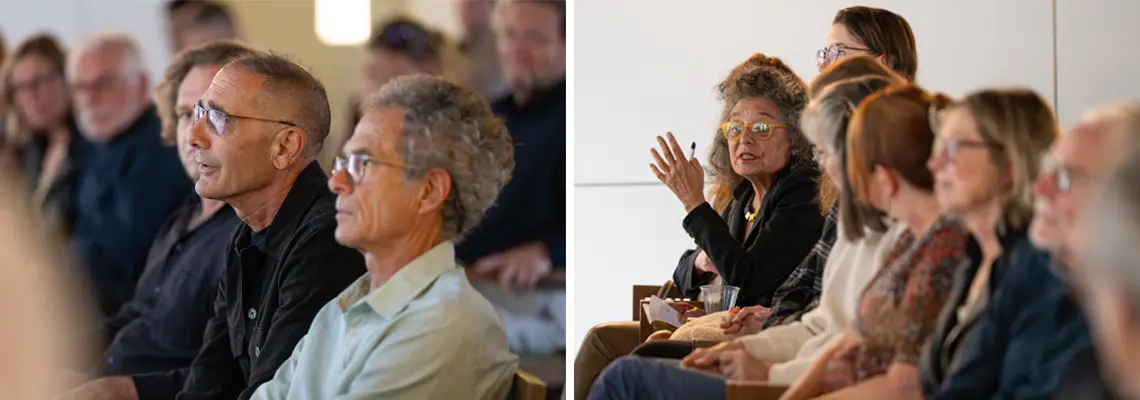
The crisis of globalization also set the stage for the rise of German fascism, Biess posits. He explained that while the Nazi right-wing movement remained obscure throughout the 1920s, their influence gained traction in the 1930s. By 1932, the party garnered 37% of the vote in national elections. “It’s important to remember that even at the height of Nazi electoral success, almost two thirds of German voters did not vote for them,” said Biess.
He continued, “The rise of German fascism has always been explained within the framework of German national history. But I would argue that the crisis of globalization, as well as the German post-colonial situation, provided crucial context within which it unfolded.”
Biess ended his talk with a reflection on the congruences that can be noticed today. “We certainly are witnesses of significant transformations and unspeakable brutality,” he said. “Sometimes it feels as if we are overwhelmed by history, and yet we struggle to retain some sort of agency.”
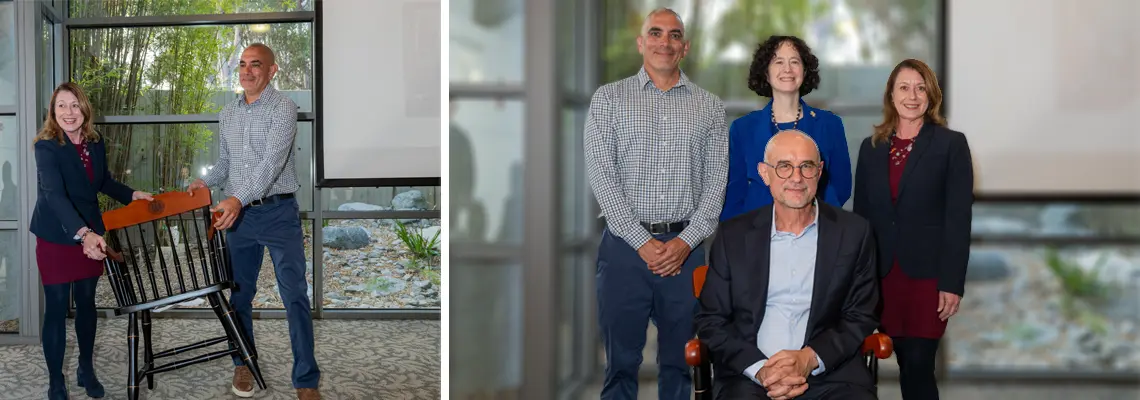
After the lecture, Biess was presented with an engraved chair, a symbol of the endowed chair position. One of the highest honors a faculty member can receive at the university, endowed chairs come with annual funding that faculty can use to sustain or spark new research. It can also be used to support graduate fellowships and help develop cross-disciplinary partnerships.
Endowed faculty chairs are made possible by generous gifts from donors to the university. The endowed chair presented to Biess was created by the Atkinson Family. It is named in honor of Rita Atkinson, an influential psychologist who co-authored one of the most widely used psychology textbooks in academia.
Twenty faculty across the School of Arts and Humanities are endowed chair holders. Endowed faculty positions help recruit and retain the top minds in academia, offering flexible funding that spurs innovation. For those interested in learning more about supporting faculty endowed chairs, contact Senior Director of Development April Bridges at apbridges@ucsd.edu.
Share This:
Stay in the Know
Keep up with all the latest from UC San Diego. Subscribe to the newsletter today.



